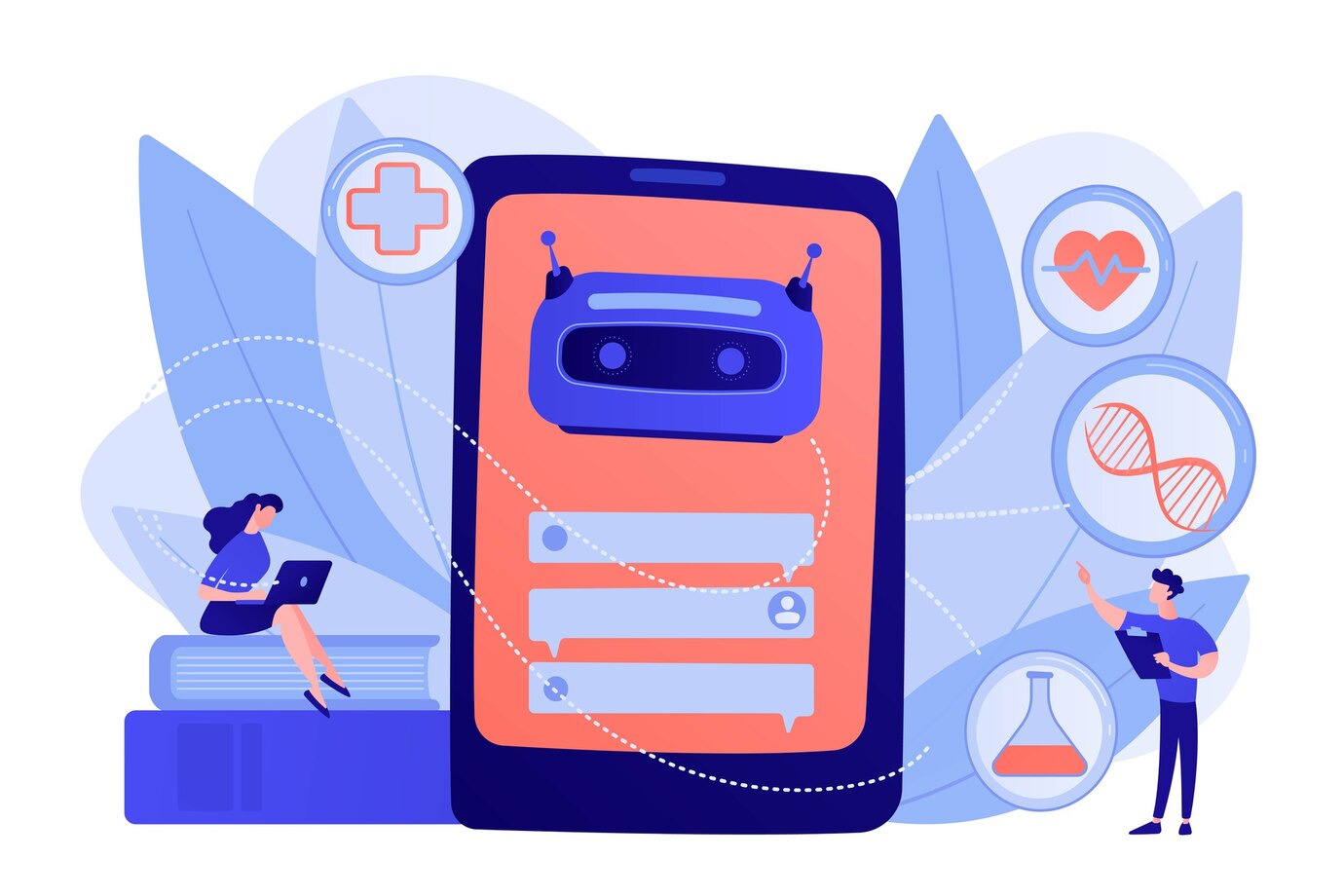In 2025, digital marketing will be even more critical for healthcare providers looking to expand their reach, engage with patients, and improve their overall marketing efforts.
The healthcare industry has undergone a major transformation, with more patients turning to online resources to find healthcare providers, seek medical advice, and book appointments.
As such, healthcare organizations must implement the right marketing strategies to stay competitive and meet patient needs effectively.
This article explores seven key digital marketing strategies that healthcare providers should prioritize in 2025 to drive success in the evolving healthcare industry.
Importance of Digital Marketing in Healthcare for 2025
As digital technology continues to evolve, the healthcare industry has experienced a major shift toward more online engagement.
According to Google, 77% of patients search online before making an appointment, while 80% of patients use the Internet to research healthcare options before committing to a provider.
These statistics highlight the importance of having a solid digital marketing strategy in place.
In 2025, healthcare providers must focus on enhancing patient acquisition, fostering deeper relationships with existing patients, and using innovative methods to improve patient experience.
A well-executed digital marketing strategy can not only help healthcare providers grow their practice but also improve patient outcomes by delivering timely, relevant information.
Must Read: AI for Startups: Strategies For Growth and Innovation
Strategy 1: Personalized Marketing with AI + Data Analytics
Artificial intelligence (AI) and data analytics are game changers in the healthcare industry, especially when it comes to personalized marketing.

AI allows healthcare providers to analyze patient data, predict patient needs, and offer tailored solutions that resonate with each individual. Chatbots in healthcare are also transforming how providers interact with patients, offering 24/7 support and personalized communication.
With AI, healthcare providers can:
- Send personalized reminders and follow-up communications to patients.
- Tailor content to meet patient preferences, increasing engagement.
- Enhance patient experiences by offering predictive analytics, such as appointment scheduling and medication reminders.
Data-driven insights also allow healthcare providers to understand patient behaviors and needs better, enabling the creation of highly effective and personalized marketing campaigns.
For example, by analyzing website interactions and patient history, AI can help healthcare providers deliver the right content at the right time, making their marketing efforts more effective and efficient.
Strategy 2: Voice Search & Local SEO Optimization

Voice search is rapidly becoming a dominant method for patients to find healthcare providers. Google has reported that 27% of the global population is now using voice search, a trend that is expected to increase in 2025.
This makes voice search optimization crucial for healthcare providers looking to maintain visibility and relevance.
Most people looking for healthcare providers rely on local search results. Optimizing for local SEO ensures that your practice appears in local search results, helping you attract more patients in your vicinity. Some effective strategies include:
- Claiming and optimizing your Google My Business listing to ensure your practice shows up in local search and Google Maps.
- Include location-based keywords in your website content, such as “dentists near me” or “best cardiologist in [city].”
By optimizing for both voice search and local SEO, healthcare providers can significantly increase their chances of appearing in relevant searches and attracting local patients.
Strategy 3: Invest in Video Marketing to Build Trust and Authority

Video content has become one of the most engaging forms of communication.
It is effective in healthcare marketing. Video marketing allows healthcare providers to showcase their expertise, explain complex medical concepts, and create emotional connections with potential patients.
Some effective uses of video marketing in healthcare include:
- Patient testimonials to build trust and credibility.
- Explainer videos that simplify medical procedures or conditions.
- Behind-the-scenes videos to humanize your practice and foster trust.
Healthcare providers can also use video content to educate patients, which can lead to increased engagement and a stronger reputation in the community.
Strategy 4: Leverage Social Media for Patient Engagement
Social media platforms like Facebook, Instagram, and LinkedIn provide healthcare providers with an opportunity to interact with patients on a more personal level.
These platforms allow you to share valuable health tips, and updates about your practice, and engage with patients directly.
In 2025, healthcare providers should focus on creating a social media strategy that includes:
- Sharing educational content that addresses common health concerns and questions.
- Running targeted ads to promote services to the right audience.
- Engaging with patients through comments, polls, and messages to build relationships.
By using social media effectively, healthcare providers can not only build their brand but also foster loyalty and trust with patients.
Strategy 5: Focus on Mobile Optimization for Better Patient Access
With the increasing use of smartphones, mobile optimization has become a must for healthcare providers.
According to Statista, mobile internet traffic worldwide accounted for 56% of total internet traffic in 2023, a trend that is expected to continue into 2025.
Ensuring that your website is mobile-friendly can improve the patient experience and make it easier for patients to:
- Book appointments online.
- Access important health information.
- Communicate with healthcare professionals via secure messaging.
By optimizing your website for mobile users, you can improve user experience and boost patient satisfaction.
Strategy 6: Improve Reputation Management with Online Reviews

Online reviews play a significant role in patient decision-making. According to BrightLocal, 79% of consumers trust online reviews as much as personal recommendations. This makes managing your practice’s online reputation crucial in 2025.
Healthcare providers can improve their reputation by:
- Encouraging satisfied patients to leave positive reviews on platforms like Google, Yelp, and Healthgrades.
- Responding to both positive and negative reviews to show that you value patient feedback.
- Utilizing reputation management tools to track and manage reviews across multiple platforms.
By managing your online reputation effectively, you can build trust with potential patients and attract more business.
Strategy 7: Implement Patient Retargeting Campaigns
Retargeting campaigns allow healthcare providers to reach out to individuals who have visited their website but did not convert into patients. By displaying targeted ads to these users across various platforms, you can remind them of your services and encourage them to return.
Some best practices for retargeting include:
- Setting up customized ad campaigns based on the pages users visited.
- Using Facebook and Google ads to show personalized messages to potential patients.
- Offering special promotions or reminders for services like vaccinations or checkups.
Retargeting can significantly improve patient retention and ensure that your practice stays top of mind.
Challenges Healthcare Providers May Face in Digital Marketing
While digital marketing offers many opportunities, healthcare providers often face challenges in implementing these strategies. Some common obstacles include:
- Budget constraints: Smaller practices may struggle to allocate enough resources to digital marketing.
- Compliance with regulations: Healthcare providers must navigate strict regulations such as HIPAA to ensure patient privacy.
- Patient privacy concerns: Balancing digital marketing with patient confidentiality can be challenging.
Solutions to Overcome Digital Marketing Challenges
To overcome these challenges, healthcare providers should:
- Invest in cost-effective marketing tools and platforms.
- Work with compliance experts to ensure all marketing efforts adhere to regulations.
- Use secure channels for patient communications, such as encrypted messaging and HIPAA-compliant tools.
Final Thoughts
In 2025, digital marketing will continue to evolve, and healthcare providers must adapt to stay competitive.
By embracing strategies like AI, local SEO, video marketing, social media engagement, and more, healthcare providers can increase patient engagement, improve retention, and ultimately grow their practice.
Looking ahead to 2026 and beyond, the future of digital marketing in healthcare is likely to be shaped by emerging technologies, such as chatbots in healthcare and advanced AI-powered solutions.
Providers who stay ahead of the curve by adopting these technologies will be well-positioned to engage patients and improve care.
FAQ Section
What are the most effective digital marketing strategies for healthcare providers?
- AI-powered marketing, video marketing, social media engagement, and local SEO are some of the most effective strategies for healthcare providers.
How can healthcare providers use AI in marketing?
- AI can be used to analyze patient data, send personalized messages, and improve patient experiences through predictive analytics.
What are the benefits of video marketing for healthcare providers?
- Video marketing helps build trust, educate patients, and showcase the expertise of healthcare providers.
How can healthcare providers improve their online reputation?
- By encouraging positive reviews, responding to feedback, and using reputation management tools.
Why is mobile optimization important for healthcare marketing?
- Mobile optimization ensures that patients can easily access your website and services from their smartphones, improving their experience.











